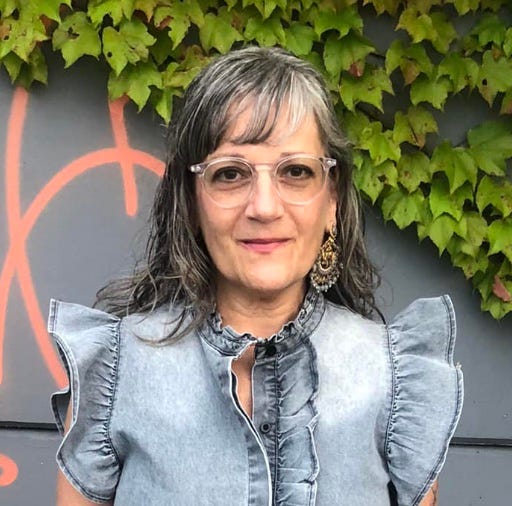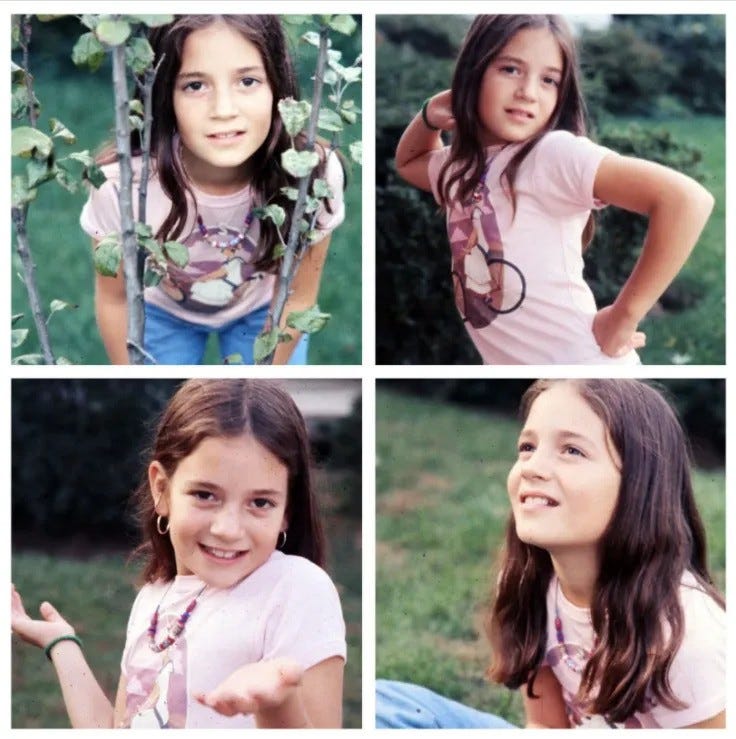Welcome to the first edition of Behind the Stack. This is my conversation with Sari Botton. She is the author of the memoir "And You May Find Yourself." She edited two bestselling anthologies: "Goodbye to All That" and "Never Can Say Goodbye." She publishes Oldster Magazine, Memoir Land, and Adventures in Journalism here on Substack.
This is a new series on my publication called, “Behind the Stack,” where I talk and feature my favorite writers on Substack.
Sari, tell me about why you started Oldster magazine:
“So, I've been obsessed with age aging and what milestones you're supposed to meet since I was 10 years old. At my 10th birthday party, my uncle said to me, ‘You'll never be one digit again.’ And my mind was blown. I hadn't realized I had passed through a portal and that I couldn't go back the other way. Ever since then, I’ve been curious about the experience of getting older. One night I had a dream that I had started a magazine called ‘Oldster.’ I thought it was funny. I went on Twitter and made a joke about it. And then I thought, ‘Oh, wait, actually, it's a really good idea.’ And so I did, I started it, and immediately it took off.”
You’ve talked to so many people over the years about aging, whether here at Substack or when you edited Fine Lines on Longreads, what’s the most surprising thing that keeps coming up?
“Well, the most surprising thing is that people keep telling me again and again that life is getting better for them when they're older, instead of what the culture is saying. On my 58th birthday, last October, I posted an essay with an intro talking about how scared I am of the next big milestone, which is 60, now less than two years ahead of me. And so many people posted comments saying, ‘You know what, my life got better after 60 after 70. You know, I started a new career, I started a new novel, I met somebody, I stopped caring about the things that I used to care about that weren't serving me.’ That has been the biggest surprise.”
Does our perspective on aging change as we get older?
I remember my first job out of college. I was 22 and my co-worker was 25. And I thought she was some kind of sage. So, the perspectives on age change as you get older, but so we're all the oldest we've ever been. On some level, the numbers sound big to us. And we all feel younger than our numbers. And also, another thing that I keep coming up upon is that, like me, people associate another age with themselves in their heads. There's a part of me that is always 10 and a half, which is how old I was when my parents split up.
If you could go back and talk to your 10-year-old self, what would you say to her?
“I’d tell her to not care about what the culture wants her to do and to be true to herself, because I got lost along the way to where I am now. I feel more like my 10-year-old self now than I ever did in my 20s and 30s. I really got myself in some wrong places that I write about in my memoir, ‘And you may find Yourself.’ I wish that I my 10-year-old self knew that she didn't have to do things that she was "‘supposed to do,’ that she could have just stayed the course with who she really is. Don’t conform. Don’t do it. Don’t waste time. It takes so much to get back to who you are.”
That’s very powerful. Tell me about writing. How long has writing been a passion for you?
“When I was like seven, eight, I had this feeling that I was different from everyone. Different from the other kids in my class, different from people in my family. And it's true, I and it was something I was trying to make sense of. So I started journaling very young. And then I was writing plays, I wrote my first play when I was 10. And I have it. And, you know, I thought that was what I was going to write, and I also wanted to be an actress. So I thought I was writing my own material.
And then in college, I was encouraged by my boyfriend at the time and my dad to apply for a journalism internship that was very hard to get. I applied and I got it, and it opened up a new world of writing for me. But I recognized very early that this was a right a good thing for me. This was a natural and organic place for me. That is to be writing and editing.”
What’s your biggest challenge right now?
“Overworking. I've gotten both magazines (Oldster and Memoir Land) to a place where people are really interested in them, people are subscribing to them, which means I have to keep consistently producing them. And it's a lot of work. And it doesn't afford me a lot of time for my own writing. That has been a consistent problem in my career, where my day job is writing and editing, and that’s different from the writing and editing I would do if I could just afford to be an artist.
I've always had a really hard time balancing making a living with having time for my own writing. There are a couple of essays that I've wanted to write for a while now and I just haven't had the bandwidth. I've been so busy, so I need to find a way to not be overworking.”
Earlier, you said that you’ve always been different. What does that mean to you?
I've always marched to the beat of my own drummer. Every time I've been in a group setting, like Hebrew school, summer camp, work, and the like; I've never wanted the same things everybody wants. I've never been interested in the same. I've rarely been interested in the same music, the same styles. I've always had my own personal style that was different from everybody else. I've tried to want what everybody wants. I've tried to be who everybody else is. And every time I fail at it, I'm miserable. I have a hard time finding my way back to myself.
I finally arrived at a place where I accept the realization of, ‘Oh, I'm not gonna want what everybody else wants. I'm just going to be me.’ I've always done everything on a different timeline. And I've always chosen away from the mainstream. I'm not mainstream. I'm not a ‘normie.’
Thank you for reading and again, a big thank you to Sari Botton for her time. You can check out her work on Oldster Magazine and Memoir Land. Her publications are certainly worth your time, so please subscribe.
Also, if you’re new here, please also consider subscribing to this publication. Upgrading to a paid subscription if you’re able is also a great help to keep this newsletter going.
Curious about the value you'll receive? Upgrade your subscription to Constantly Curious. For just $5 a month, you'll gain access to premium content, supporting both the newsletter and my ongoing work.




Thanks so much for featuring me. Honored to be the first interview in this new series!
I love her too- I subsrcibe to Oldster. Great inteview! I love this behind the stack. im always inteerested in how and why people get their information and inspiration!